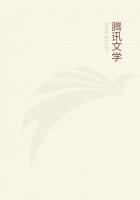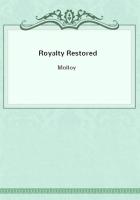"Like sounds without the twilight realm of dreams, Which wander round the bases of the hills."We also note close observation of nature in the curious phrase -"Cries of the partridge like a rusty key Turned in a lock."Of this kind was Tennyson's adolescent vein, when he left "The poplars four That stood beside his father's door,"the Somersby brook, and the mills and granges, the seas of the Lincolnshire coast, and the hills and dales among the wolds, for Cambridge. He was well read in old and contemporary English literature, and in the classics. Already he was acquainted with the singular trance-like condition to which his poems occasionally allude, a subject for comment later. He matriculated at Trinity, with his brother Charles, on February 20, 1828, and had an interview of a not quite friendly sort with a proctor before he wore the gown.
That Tennyson should go to Cambridge, not to Oxford, was part of the nature of things, by which Cambridge educates the majority of English poets, whereas Oxford has only "turned out" a few--like Shelley. At that time, as in Macaulay's day, the path of university honours at Cambridge lay through Mathematics, and, except for his prize poem in 1829, Tennyson took no honours at all. His classical reading was pursued as literature, not as a course of grammar and philology. No English poet, at least since Milton, had been better read in the classics; but Tennyson's studies did not aim at the gaining of academic distinction. His aspect was such that Thompson, later Master of Trinity, on first seeing him come into hall, said, "That man must be a poet." Like Byron, Shelley, and probably Coleridge, Tennyson looked the poet that he was: "Six feet high, broad-chested, strong-limbed, his face Shakespearian and with deep eyelids, his forehead ample, crowned with dark wavy hair, his head finely poised."Not much is recorded of Tennyson as an undergraduate. In our days efforts would have been made to enlist so promising a recruit in one of the college boats; but rowing was in its infancy. It is a peculiarity of the universities that little flocks of men of unusual ability come up at intervals together, breaking the monotony of idlers, prize scholars, and honours men. Such a group appeared at Balliol in Matthew Arnold's time, and rather later, at various colleges, in the dawn of Pre-Raphaelitism. The Tennysons--Alfred, Frederick, and Charles--were members of such a set. There was Arthur Hallam, son of the historian, from Eton; there was Spedding, the editor and biographer of Bacon; Milnes (Lord Houghton), Blakesley (Dean of Lincoln), Thompson, Merivale, Trench (a poet, and later, Archbishop of Dublin), Brookfield, Buller, and, after Tennyson the greatest, Thackeray, a contemporary if not an "Apostle." Charles Buller's, like Hallam's, was to be an "unfulfilled renown." Of Hallam, whose name is for ever linked with his own, Tennyson said that he would have been a great man, but not a great poet; "he was as near perfection as mortal man could be." His scanty remains are chiefly notable for his divination of Tennyson as a great poet; for the rest, we can only trust the author of In Memoriam and the verdict of tradition.
The studies of the poet at this time included original composition in Greek and Latin verse, history, and a theme that he alone has made poetical, natural science. All poetry has its roots in the age before natural science was more than a series of nature-myths. The poets have usually, like Keats, regretted the days when "There was an awful rainbow once in heaven,"when the hills and streams were not yet "dispeopled of their dreams."Tennyson, on the other hand, was already finding material for poetry in the world as seen through microscope and telescope, and as developed through "aeonian" processes of evolution. In a notebook, mixed with Greek, is a poem on the Moon--not the moon of Selene, "the orbed Maiden," but of astronomical science. In Memoriam recalls the conversations on labour and politics, discussions of the age of the Reform Bill, of rick-burning (expected to "make taters cheaper"), and of Catholic emancipation; also the emancipation of such negroes as had not yet tasted the blessings of *******. In politics Tennyson was what he remained, a patriot, a friend of *******, a foe of disorder. His politics, he said, were those "of Shakespeare, Bacon, and every sane man." He was one of the Society of Apostles, and characteristically contributed an essay on Ghosts. Only the preface survives: it is not written in a scientific style; but bids us "not assume that any vision IS baseless." Perhaps the author went on to discuss "veridical hallucinations," but his ideas about these things must be considered later.
It was by his father's wish that Tennyson competed for the English prize poem. The theme, Timbuctoo, was not inspiring. Thackeray wrote a good parody of the ordinary prize poem in Pope's metre:-"I see her sons the hill of glory mount, And sell their sugars on their own account;Prone to her feet the prostrate nations come, Sue for her rice and barter for her rum."Tennyson's work was not much more serious: he merely patched up an old piece, in blank verse, on the battle of Armageddon. The poem is not destitute of Tennysonian cadence, and ends, not inappropriately, with "All was night." Indeed, all WAS night.















